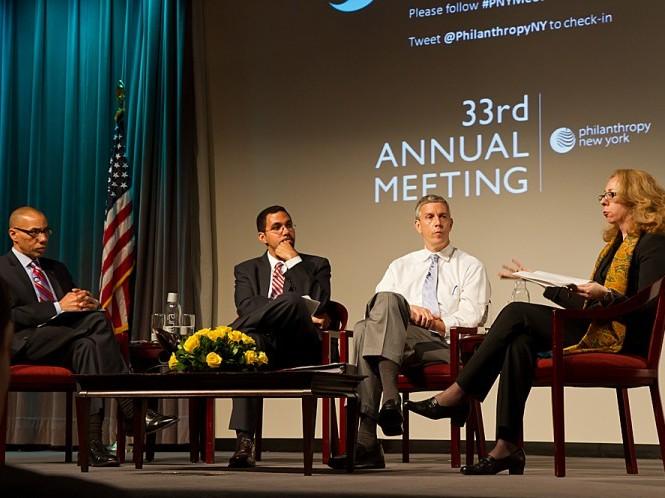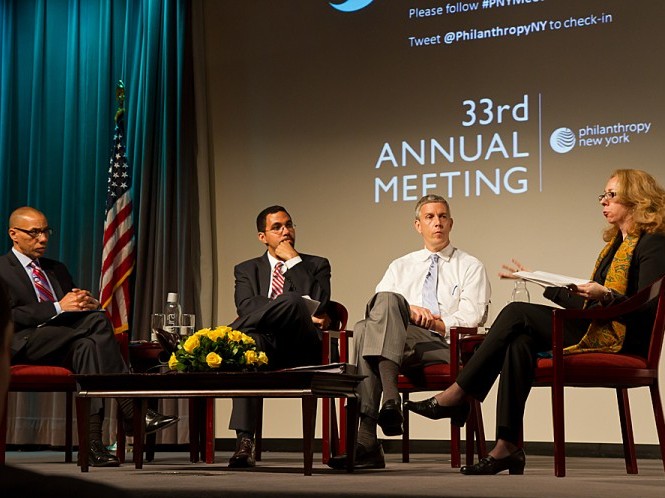NEW YORK—Encouraging education reform in the nation’s largest public school system, top national, state, and city education officials came together on Monday evening to attend Philanthropy New York’s 33rd annual meeting.
U.S. Secretary of Education Arne Duncan repeatedly referred to “multiple measures” as crucial for evaluating teachers including student surveys, peer evaluations, and graduation rates.
According to Duncan, in New York state 250,000 ninth-graders dwindle to 188,000 12th-graders, leading him to question the crowd of over a hundred.
“How do we keep those 62,000 people in school, graduating, and ultimately, graduating college and career ready?” Duncan said. “That’s the battle we’re all fighting together.”
Anecdotes from Duncan and John B. King Jr., the state’s education commissioner, advocated diverse classes, even in trying economic times.
“If you want your children to do better in math, try some music. If you want our kids to sit and concentrate in class, try some recess,” Duncan said. “I was one of those young boys, if I had to sit still for six hours, boy, I felt sorry for my teachers. If I had a chance to run around a little bit and let off some steam, then I could sit there and concentrate. So it’s being smart.”
King relayed a story of a high school student whose work on a Cobra motorcycle during shop class motivated him to attend school every day.
“In that high school, their mindset is ‘We’re going to find the thing that is the hook for every kid,’” King said.
More stringent standards for students address both a lack of college preparedness and building fundamental basics key to a life of learning, King said.
He said these are ideas behind Common Core, a state-led initiative. Requiring students’ writing to have “evidence from sources,” and fleshing out the curriculum to include more varied classes are two examples related to the initiative.
Philanthropy
Both Duncan and Dennis Walcott, the city schools chancellor, talked about the importance of private philanthropy.
Walcott said philanthropy plays an “important role … allowing us to experiment, allowing us to use monies that are not city tax levy dollars.”
In the city, private funding has enabled a five-week program for a learning bridge between school years; added support for teachers; and created a summer program aimed at test preparation for admission into the city’s eight specialized high schools, according to a Department of Education release.
Near the end of the hourlong discussion, Duncan challenged the room about seeking return for their investments.
“I’m actually not coming before you to ask you to give a lot more—although that would be great, too—but to be really smarter in what you’re giving,” Duncan said. He invited philanthropists to ask themselves if they are really going to make a difference before they give money.
Duncan said there are disparities in the quality of education programs throughout the city.
“There’s great early childhood programs and there are terrible early childhood programs, quality matters,” he said.
The Epoch Times publishes in 35 countries and in 19 languages. Subscribe to our e-newsletter.







